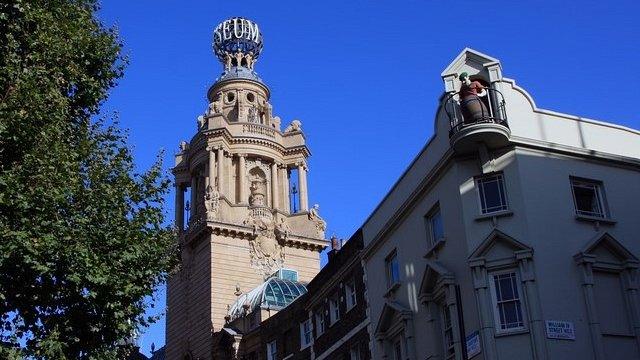Arts Council funding: Winners and losers
- Published
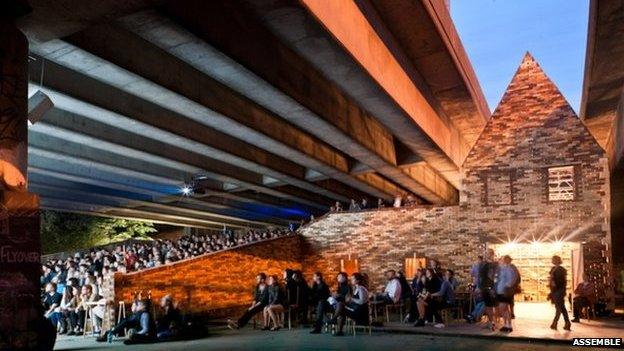
Create/Assemble project Folly for a Flyover (2011)
The Arts Council for England (ACE) says its spending plans for the three years from 2015 will help strengthen and promote activity outside London.
Some 670 arts organisations will receive annual grants worth a total of £340m per year.
Three quarters of those have had their funding frozen. Among the losers is the English National Opera which has a funding cut close to 30%.
Here, some of the other winners and losers reflect on their positions.
The Orange Tree Theatre in Richmond - lost funding
The news that Richmond's Orange Tree Theatre, external had lost all of its funding came on new artistic director Paul Miller's first official day in the job. The funding represents almost a quarter of the theatre's income.
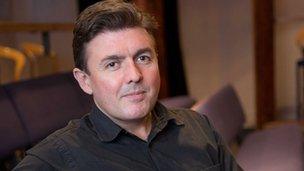
The Orange Tree's Paul Miller
"I think the big, national contradictory pressures that are on the Arts Council were just so great that something had to give - and on that occasion it was us," Mr Miller told the BBC.
"I think there is an element of rebalancing out of London. Perhaps there was a perception about the kind of work that the Orange Tree was doing that was not easy to shift.
"Once upon a time, the Orange Tree was a fledgling start-up company that had its first Arts Council funding. For new younger companies to get into the system, it means that existing organisations cannot simply take for granted that they will continue to be regularly funded."
He said talks with the Arts Council would continue while until he developed a new business model.
"There are still many ways in which we can continue to take wonderful theatre in our lovely space. We just have to find a financially different way of doing it."
The Lowry arts complex in Salford - funding cut
Salford's The Lowry, external arts centre had a 22% funding drop to £800,000 per year. But it also received a £3m capital grant from the Arts Council and a £1 million private donation - the largest in its 14-year history.
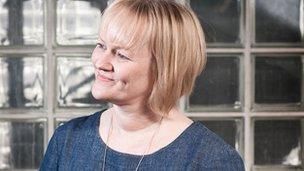
The Lowry's Julia Fawcett
"It's a mixed result for us but one that we're broadly pleased with," said chief executive Julia Fawcett.
The Arts Council funding currently represents about 6% of The Lowry's total budget, and this will drop to about 4% from 2015.
"It means we'll have to recalibrate, refocus and work harder," said Ms Fawcett.
She didn't see "too many seismic shifts" in the way funding had changed outside the capital.
"The shift out of London is so marginal it hardly bears attention. It does look as if London-based organisations have taken a cut but it's at the margins.
"There's been some degree of restoration for some of our significant touring companies - like Birmingham Royal Ballet and Opera North."
Unicorn Theatre in London - funding rise
Unicorn Theatre, external, which specialises in arts for young people, had a 30% boost taking its annual grant to £1.3m from April.
"Children's theatre has come a long way since the Unicorn was founded in 1947 and it's a terrific milestone to be recognised in this funding round as being equally important to the cultural life of the nation as any of the country's leading theatres," said artist director Purni Morell.
"We're absolutely committed to making this vital public investment count, not just for the Unicorn but for the whole of children's theatre in the UK, as we embark on an ambitious programme of commissions, productions, tours and talent development. As ever, working with some of the best artists around and continuing to push expectations of what can be achieved in children's arts ever higher."
Create - first time funding
Create, external, which commissions art in public spaces, is one of the 46 new organisations to receive Arts Council funding. Primarily working in east London, it is launching its first project outside of London - an artist-designed playground in the east end of Glasgow.
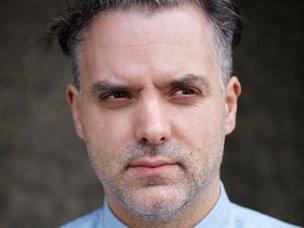
Create's Hadrian Garrard
Hadrian Garrard, director of Create, said: "It's now becoming more broadly acknowledged that publically-funded arts organisations need to do more to reach different demographics. We see ourselves as emerging leaders in how to do this well and this is a great acknowledgment of that by the Arts Council.
"It will allow us to produce more ambitious projects involving communities in east London and other cities across the UK. We're thrilled that the Arts Council have chosen to acknowledge our track record of bringing ambitious and challenging new art to people from all backgrounds."
- Published1 July 2014
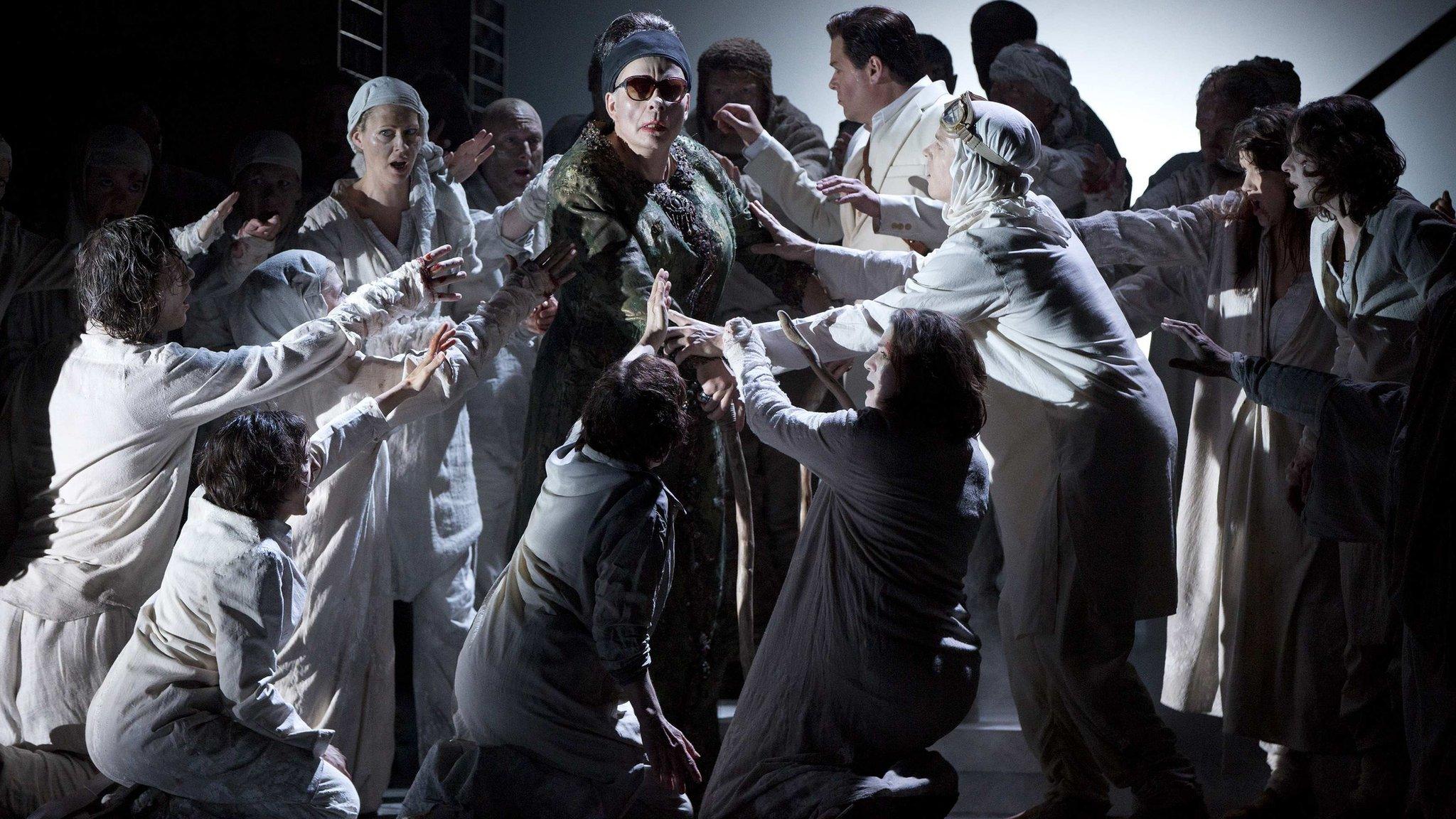
- Published1 July 2014
